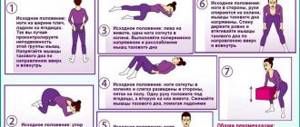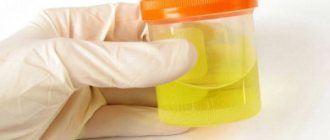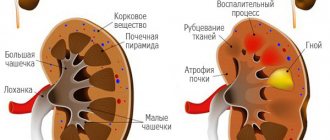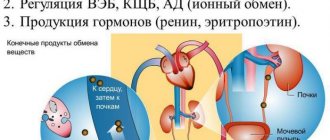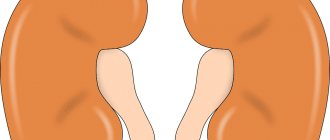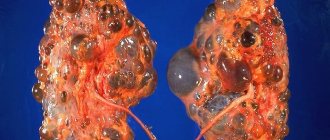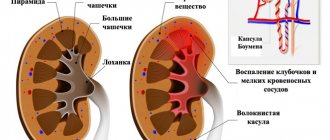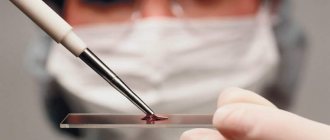Only those women who have given birth to a child or are just preparing for the birth of a baby know what difficulties the body can face during pregnancy.
All organs of a pregnant woman function differently than usual. They work in an intensive mode to ensure the life of two people at the same time.
Therefore, it is not surprising that the anticipation of the birth of a child is periodically overshadowed by various diseases that suddenly make themselves felt. These include exacerbations of chronic illnesses and new acquired pathologies.
The good news is that many dysfunctions disappear after childbirth, as the body returns to normal life. But they still cannot be ignored, because this can harm both the fetus and the pregnant woman. Thus, many expectant mothers say that their kidneys hurt during pregnancy. Could this be dangerous?
Gestation period and kidneys
To understand why the kidneys hurt during pregnancy, you need to understand the peculiarities of their functioning during such a difficult period.
The kidneys are urinary organs, and constantly pass through themselves all the blood in the bloodstream.
In the renal glomeruli, plasma and some blood cells enter the tubules as a result of filtration.
A lot of this liquid, primary urine, is formed - about 100 times more than the volume of the final excretory products. Water and compounds that the body may still need are returned to the bloodstream again, through the process of reabsorption. This phenomenon also occurs in the kidneys.
As a result, approximately 1% of the filtered secretions remains, which is called secondary urine and is excreted from the body through the urethra to the outside.
In a pregnant woman, the amount of fluid in the body increases, including blood volume. This means that the kidneys have to do an even more difficult job.
Healthy tissues tolerate increased stress much easier; they adapt to such tests.
If before pregnancy there were any disturbances in the functioning of the kidneys or they appeared after conception, the likelihood of their manifestation in the form of pain, changes in the properties of urine, and intoxication becomes much higher.
Another feature is a decrease in immunity, which occurs in many pregnant women during pregnancy. The immune system, in its usual mode of functioning, copes faster with infectious infections, preventing them from developing, but now it may not have time to eliminate pathogens in the urinary system in a timely manner. In this regard, the risk of infectious diseases increases.
In a pregnant woman’s body, there is a special factor that affects the internal organs - an enlarging uterus. In the last months of pregnancy, it displaces the respiratory, digestive, and urinary organs from their usual locations in order to increase the living space for the developing baby.
An enlarging uterus causes the entire internal space of the abdomen to change
Such “crowding” in the abdominal cavity, chest and pelvic cavity disrupts the normal functions of organs. Many women experience heartburn, flatulence, shortness of breath, kinks in the ureters, difficulty urinating and pain in the kidneys.
Sometimes the kidneys hurt during pregnancy in the last weeks, because a dangerous condition develops - gestosis. It is accompanied by impaired vascular permeability and can cause multiple pathologies in the body, including those associated with the kidneys.
To reduce the load on your organs, you need to protect your body from at least those factors that depend on the woman herself - poor nutrition, bad habits, physical and psychological stress.
Kidney functionality
Normally, each person has 2 kidneys: one of them is the right, the other is the left. The kidneys are located on both sides of the spine at the level of the last (12) thoracic and 3rd lumbar vertebrae. The shape resembles beans, each weighing from 120 to 300 grams.
On the outside, each kidney is covered by a dense connective tissue capsule. Inside, the organ is represented by the cortex (outer layer) and medulla (inner layer) substances.
The main function of the kidneys is the formation and excretion of urine.
Urine is collected in the kidney cups. Several renal calyces (3–4) form the renal pelvis. Its ducts pass into the ureters, and those into the ureter. Urine is discharged from the bladder through the urethra (urethra). Usually, the final urine contains only substances that the body does not need.
When a girl is “in position”, all systems must function intensively - “for two”. The kidneys are loaded much more than other organs: urine production increases, while the tone of the bladder increases relative to normal, which interferes with the normal release of urine. In addition, the bladder experiences pressure from the increasing size of the uterus. Constipation is another common occurrence during pregnancy, which also puts pressure on the bladder. In front of it is the uterus, and behind it is the rectum. Thus, urine that does not leave the body for a long time can cause infections and urinary stones.
How can you find out if your kidneys hurt during pregnancy?
If your kidneys hurt during pregnancy, symptoms and discomfort occur in the lumbar region, near the spine.
The pain may radiate to other parts of the body, especially to the lower extremities. With severe inflammation, the discomfort becomes so noticeable that it hurts even to touch the skin directly above the kidneys.
Such sensations may also indicate problems with the musculoskeletal system. Often it is not possible to distinguish between these pains without examination. True, there is one caveat: most often the right kidney becomes inflamed and hurts during pregnancy, or the left one, and then the pain will appear either to the left or to the right of the spine. However, with bilateral kidney damage, this sign is not reliable.
You should pay attention to other accompanying symptoms that may also indicate diseases of the kidneys and urinary system as a whole:
- pain in the urethra;
- feeling of insufficient emptying after urination;
- changes in the color and smell of urine;
- swelling of the legs, arms, torso, face;
- signs of hypertension;
- signs of intoxication (chills, vomiting).
If the pain constantly disturbs a woman and intensifies, she should immediately contact a gynecologist and nephrologist. To clarify the diagnosis, special examinations are prescribed.
It is better not to try to independently identify the source of pain; without the help of a doctor, this is unlikely to be done, especially since almost all women have back pain during pregnancy for one reason or another.
Reasons for going to the doctor
It has already been noted that when carrying a fetus, a woman must withstand double loads. The back is especially sensitive and one of the first to react to changes. The back can hurt for many reasons, because the musculoskeletal system is also seriously stressed. Only specialists - a urologist or gynecologist - will help you understand the true cause of the pain.
The most characteristic signs of kidney disease are:
- discomfort or pain when urinating;
- a feeling of a full bubble and therefore - often you want “small”;
- severe swelling of the lower extremities, under the eyes;
- prolonged hypertension;
- soreness slightly above the lower back;
- increased pain in the lumbar region and its longer duration;
- the presence of pain even with a more comfortable body position;
- fever, chills with nausea and vomiting;
- increased sensitivity, pain in response to even the slightest touch;
- the appearance of protein in urine.
Diagnostic methods
When contacting a doctor, you should tell him all the details of your condition: when and how the pain appeared, what signs of well-being have been alarming you recently.
It is important to describe the baby’s behavior in recent days, how often the movements are felt and how intense they are (information will be useful in the last months of pregnancy).
The doctor will order urine tests (there are different types). You need to donate blood and, if necessary, do an ultrasound. To check for viral or bacterial infections, culture or PCR tests must be performed.
For some diseases of the urinary system, it is advisable to conduct special examinations that assess the patency of the urinary ducts and the degree of bladder emptying. You will also have to undergo a vaginal smear, since gynecological diseases can also be associated with such pain.
The presence of pathogens in the urine and blood, the composition of the urine, the presence of sediment, protein or blood in it, the detection of tumors or kidney stones indicate the presence of a disease and require immediate treatment.
When your kidneys hurt during pregnancy, what should you do? If the disease is detected, you should not delay treatment, since advanced diseases and their complications can lead to the death of the baby.
Prevention
Pregnancy is a responsible step for every woman. It is extremely important to follow the rules of prevention in order to give birth to a strong and healthy baby. To do this you will need to follow the following recommendations:
- Undergo comprehensive examination on an ongoing basis. Thus, the expectant mother will be able to identify signs of pathology in the early stages of development.
- In the first trimester (13 weeks of pregnancy), drink 2 liters of fluid daily.
- Maintain a sleep schedule to ensure your rest is complete.
- Maintain hygiene, in particular of the genitals.
- Eliminate tight clothing from your wardrobe, as well as items made from low-quality fabrics.
- Play sports and do light physical activity.
- Cure all diseases associated with the urinary system before conceiving a baby.
- Balance your diet. Avoid spicy, sour, fried and fatty foods. Then your body will be in a normal state, and if pain occurs, it will be easier for the patient to determine the cause of its occurrence, as well as undergo an examination.
- Do not hold back your urine output and visit the toilet on time.
Pregnancy imposes great responsibility on a woman, because she must carry a child and give birth to a full-fledged and healthy one. Based on this, the expectant mother should treat her body with care and if pain occurs in the back on the right side, as well as in other areas, do not hesitate, but immediately undergo the required tests. Thus, a woman will have the opportunity to identify pathologies in the early stages of development, eliminate them painlessly and easily, and become a happy mother.
Possible diseases
The most common kidney diseases in expectant mothers are:
- pyelonephritis;
- glomerulonephritis;
- urolithiasis disease.
There may be other diagnoses (the presence of neoplasms, autoimmune organ damage), but they occur less frequently. Pathologies of other urinary organs (cystitis, urethritis) are also possible, which can cause complications affecting the kidneys.
If an acute form of the disease is determined, it must be treated until complete recovery; if it is chronic, it will be necessary to undergo repeated courses of treatment from time to time.
Kidney diseases accompanied by pain
Most often, urolithiasis, inflammatory disease pyelonephritis and immunoallergic glomerulonephritis are diagnosed during pregnancy.
Urolithiasis disease
The reason for the formation of kidney stones during pregnancy is changes in metabolic processes, as a result of which the content of insoluble salts in the urine increases - urates, oxalates, phosphates.
Urolithiasis is manifested by paroxysmal acute pain localized in the lower back and radiating to the leg. The disease is dangerous due to the high likelihood of developing inflammatory processes.
Pyelonephritis
The distinctive features of this disease are unilateral pain in the lumbar region. Other symptoms of pyelonephritis are high temperature, fever, frequent painful urination. Protein is detected in the urine, the level of red blood cells and white blood cells is increased.
Gestational (primary) pyelonephritis often develops during long periods of pregnancy due to congestion in the kidneys caused by pressure from the uterus on them. In the first trimester, pyelonephritis is often bacterial in nature. This pathology can lead to fetal hypoxia or intrauterine growth retardation.
Glomerulonephritis
Damage to the renal glomeruli (glomeruli) is caused by protein complexes that settle in their capillaries and clog the vessels. Such complexes are formed during the process of binding antibodies to pathogenic microorganisms in infectious diseases such as tonsillitis, ARVI, and streptococcal skin lesions. The right kidney is affected more often than the left. This is due to the anatomy: the kidney, located on the right side, is 2-3 cm lower, urine stagnation occurs more often in it, and therefore the inflammatory process develops more easily.
Glomerulonephritis has an adverse effect on the course of pregnancy: due to disruption of the uteroplacental blood supply, the disease can lead to the development of preeclampsia and premature birth.
Glomerulonephritis is often asymptomatic, becoming chronic, and is detected during a routine urine test. The main danger of the disease is the risk of the mother developing renal failure or late toxicosis, placental abruption, and fetal development disorders.
Treatment
Treatment directly depends on the specific diagnosis.
For bacterial infections, antibiotics are needed, but only those and in such quantities that the effect on the baby’s body will be minimal.
For viral diseases, drugs that affect the natural processes of fighting viruses and antiviral drugs are prescribed.
For urolithiasis, anti-inflammatory drugs and herbal medicine may be needed; surgical interventions during pregnancy are extremely undesirable; if surgery is necessary, it can be postponed until the birth of the child.
The doctor will definitely advise you to follow a diet (a diet without spicy, salty and other foods that irritate the mucous membrane), and an optimal drinking regimen. In the absence of edema, the daily fluid intake is approximately 2 liters; in case of edema, the doctor determines it individually.
If you are not allergic to herbs, your doctor may recommend drinking their decoctions.
They have a comprehensive effect on the kidneys, wash away pathogens and toxins from the surface of their ducts, relieve inflammation, and accelerate the healing of damaged tissues.
A pregnant woman can avoid kidney problems if she is less hypothermic and carefully follows the rules of a balanced diet, work and rest schedule.
It is necessary to empty the bladder in a timely manner; stagnation of urine leads to pathologies of any urinary organ, the development of infections, and the deposition of stones.
If there are any diseases in the body, you should be treated immediately and fully, because pathogens from any source can spread to the kidneys.
In some cases, hospitalization may be necessary. Kidneys are vital organs; during pregnancy, the lives of two people depend on them (and in case of multiple pregnancies, three or more).
Therefore, doctors prefer not to take risks and suggest going to hospital.
A pregnant woman should not refuse this, because with constant medical supervision, the risk of a sudden deterioration in her condition decreases.
And for many diseases, bed rest is also indicated, which protects a woman from miscarriage or premature birth. If the condition is not critical, treatment at home is possible, but only with careful adherence to doctor's instructions.
If the kidneys hurt during early pregnancy and a woman is being treated at home, she should not voluntarily interrupt therapy or take the wrong medications as prescribed by the doctor - this can cause complications and death of the fetus.
Treatment of pregnant women: features and nuances
The doctor always selects the course of treatment and medications individually, taking into account the health characteristics of the mother, the duration of pregnancy and other factors.
You should never self-medicate, since it is easy to harm the fetus. At the first symptoms, you need to go to a doctor who will conduct an examination, find out the cause of the ailment and prescribe treatment.
If pain in the kidney area bothers you in the first trimester of pregnancy, then taking medications during this period is prohibited.
To restore the normal functioning of these organs, the doctor prescribes treatment based on herbal medicine.
Mostly these are decoctions of medicinal plants or preparations made on their basis. But not all herbs can be taken by pregnant women, so only a doctor can prescribe treatment.
In case of pyelonephritis, antibiotics must be taken to destroy bacteria, which are selected with special care. Nowadays there are antibiotics that do not harm the fetus.
The effect of medications is enhanced with the help of urological herbal preparations, which have anti-inflammatory, diuretic and antimicrobial effects. Antispasmodic drugs help reduce pain.
Diet food
In addition to regularly taking medications and herbal remedies, it is important to follow a strict diet. The following should be completely excluded from the diet:
- roast;
- spicy;
- smoked;
- fat;
- sour.
All these products have an irritating effect on the bladder mucosa, which significantly complicates its work.
Video on the topic
Ultrasound and functional diagnostics doctor of the clinic, nephrologist, doctor of the highest category about kidney diseases in pregnant women:
If the left kidney hurts during pregnancy, the right one, or both, this may indicate the presence of dangerous diseases that should be treated urgently. By leaving such symptoms unattended, a woman risks the life of the child and her own. But you shouldn’t panic either; in many cases, pain is caused by less serious causes, and they can easily be eliminated with proper therapy and following a special gentle diet. After childbirth, many unpleasant symptoms disappear.
How to treat
If your kidney hurts during pregnancy, you should not decide on your own what to do or how to treat it. Self-medication can threaten not only the health of the pregnant woman and her unborn child, but also their lives. When the kidneys hurt or other unpleasant sensations appear during pregnancy, it means that the removal of toxic substances from the body of the woman and the child in the womb is disrupted. And you can’t delay the examination! Timely seeking help from your doctor will save both lives. In situations where the kidney hurts or kidney symptoms appear in a pregnant woman, after examination the following therapy is prescribed:
- taking medicinal herbs and preparations.
A special composition of herbal medicines is selected that has an anti-inflammatory effect, but is safe for the development of the fetus and the woman’s body. The composition of the collection may also include herbs that relieve spasms of smooth muscles, as well as have a diuretic effect to relieve swelling; - table No. 7 is assigned, i.e. dietary nutrition, excluding fatty, spicy, smoked and salty foods. The food should be steamed or boiled. Frying and stewing food is prohibited, as is the use of any spices;
- if necessary, the doctor may prescribe non-steroidal anti-inflammatory drugs;
- antibiotics. They are used only for bacterial infection of the kidney and urinary tissues.
Also, if your kidneys hurt, it is recommended to drink cranberry juice or a decoction of lingonberry leaves.
If pathology appears in the kidney during pregnancy, it is strictly forbidden to self-medicate. Only a doctor can make a correct diagnosis and choose a treatment that is harmless to the development of the fetus.
Cystitis
Cystitis may be the first manifestation of many urological diseases during pregnancy, including pyelonephritis. When cystitis appears, the woman’s general condition worsens. She becomes lethargic, her ability to work decreases, weakness appears, and her temperature can rise to 37.5 degrees. With further development of the disease, frequent urination is observed - every 30-40 minutes. At the end of urination, a woman may feel cutting pain.
To confirm the diagnosis, it is necessary to take tests not only of urine, but also of blood. Acute cystitis lasts from a week to ten days. If the disease drags on, you will need to undergo an examination to identify possible inflammatory processes.
Cystitis must be recognized in time and treatment must begin as soon as possible. This will help minimize the likelihood of developing a more serious disease - pyelonephritis, which has many harmful consequences not only for the pregnant woman, but also for her fetus.
Pyelonephritis
With this pathology, damage occurs to the pelvis and calyces of the paired organ. The causative agents of this pathology are Candida fungi, Escherichia coli, Proteus, and so on.
The spread of the disease occurs in two ways:
- Ascending - starting from the urethra and bladder.
- Hematogenous - the beginning is from the tonsils, gall bladder or teeth.
During pregnancy, pyelonephritis has an acute (first manifestation) or chronic form. Sometimes pyelonephritis occurs immediately after the baby is born.
Symptoms of the acute stage are as follows:
- sudden onset of the disease (first time);
- rapid increase in temperature up to 40 degrees;
- severe chills, which then give way to cold sweat;
- headaches;
- an unpleasant sensation in the lower back that goes away if you lie on your side and raise your knees high.
In the chronic course, there are no severe symptoms, sometimes only back pain occurs. But with an exacerbation of the pathological condition, the symptoms resemble the acute stage of the disease.
There are several degrees of risk of pyelonephritis in a pregnant woman:
- the disease has appeared for the first time, and its course passes without obvious complications;
- uncomplicated chronic pathology;
- a complicated course of the disease if a woman has only one kidney.
In the third case, kidney pathology and pregnancy are incompatible, since there is a high probability of death for the woman herself.
During therapy to eliminate the disease, close attention should be paid to drinking and nutrition, recommendations for which will be given by the attending physician.
Medicines that are used to treat pyelonephritis include:
- antihistamines;
- antispasmodics;
- antibacterial compounds;
- diuretics;
- detoxification medications.
Also, the patient is often prescribed physical therapy and catheterization of the ureters.
Prevention of kidney diseases in expectant mothers
Pregnant women can protect themselves from the occurrence of kidney diseases by taking preventive measures. By following simple rules, you can survive the period of waiting for a baby without consequences for your body.
- Every day, drink at least a glass of cranberry or lingonberry juice. These berries are good not only for the treatment of kidney diseases, but also for prevention.
- From the first days when you find out about pregnancy, you need to adhere to a diet that will help maintain kidney health. Avoid everything salty, smoked, fried, and fatty. Eliminate white bread and all legumes from your diet.
- You need to drink at least 2 liters of water per day.
- Go to the toilet as often as possible, do not tolerate it under any circumstances.
- Clothes should be loose; remove all tights and swimming trunks that are tight or cause discomfort.
- Buy underwear only from natural cotton; this can be found in departments for pregnant women.
- Don't take a bath, use a shower.
- Don't forget about gymnastics for pregnant women.
If you don’t have the opportunity, time or simply desire to attend gymnastics in a group, then be sure to do one exercise at home - stand on all fours. Take this pose 3-4 times a day, hold for 15 minutes. The uterus in this position will not put pressure on the urinary tract and kidneys, the organs will rest a little from the heaviness. This exercise also helps with back pain.
